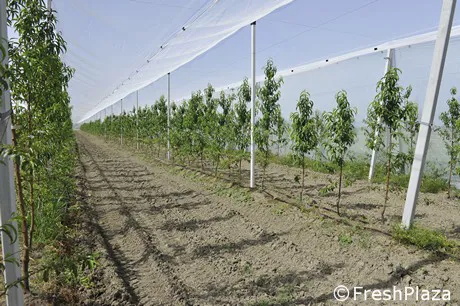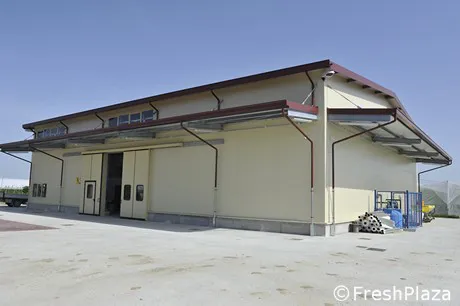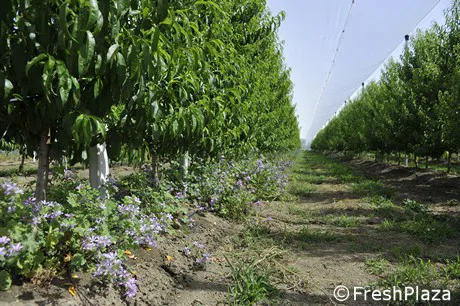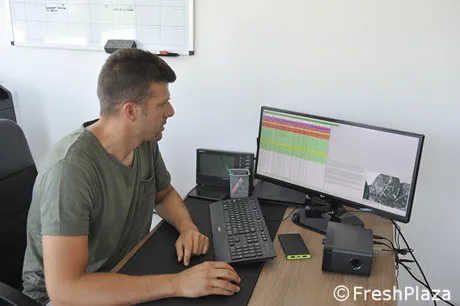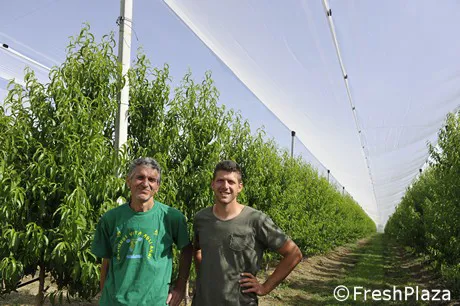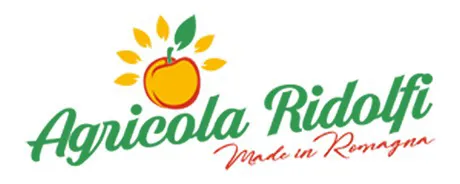Out of a total of 32 hectares of two different varieties of nectarines, namely "Romagna Giant" and "Dulciva", almost 5 hectares have been fully covered. The coverage protects from and impedes access to insects such as Asian bugs and aphids in the first place, and to birds such as starlings and magpies. The grower has placed these nets with the assistance of the Adriatic Agricultural Consortium, at a cost which ranges between 20 and 25 thousand euro per hectare.
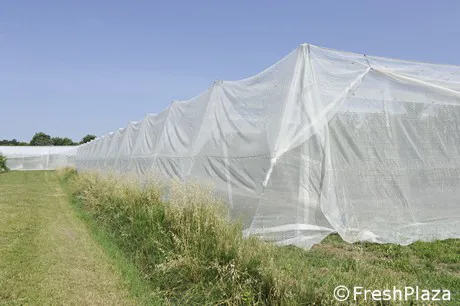
The farm "Agricola Ridolfi" is located in Ravenna. Bruno and his son Mattia are the supervisors, while the other son Marco and his mother Gianna take care of the "agri-tourism". Mattia is 36 years old, has a degree in Agriculture and is the company's engine and innovator. Mattia states that they decided to fully cover these 4.5 hectares because they believe that nets are the best system to be implemented with respect to insurance costs. The cost of the insurance is 1800 euro per hectare, deductibles are increasing, and contributions never arrive. Moreover, in light of hail-like events, the product is no longer available and buyers end commercial agreements while searching for suppliers elsewhere.
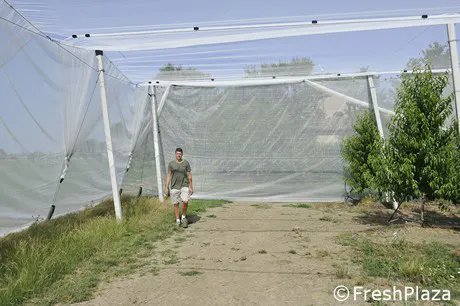
Ridolfi owns one of the largest fully protected nectarine plants in the Emilia Romagna region. It was designed by the technicians Andrea Rossi and Emanuele Pedota and, on this front, the Adriatic Agricultural Consortium has considerable experience. In this area of Ravenna, the Asian bug is not common, also because of the low temperatures which were registered last February in light of the frost (namely of 12 ° C), which had decreased the population. However the prospects are not very encouraging and there is a risk that the Asian bug will spread in a few years' time. The aphids, on the other hand, are the vector of Sharka and the networks prevent them from making contact with the plants.
Ridolfi owns 30 hectares of nectarines with the following varieties: Big Top, Ali Top, Romagna Giant, Febe, Big Romagna, Dulciva, Dulcis and Romagna Lady. All these varieties are sub-acid which makes them sweet. If they are well cultivated, these varieties guarantee a high calibre.
"As of this year we have been marketing independently and for this purpose we have purchased processing lines. When all hectares will be in full production, we will be able to produce a potential of 1000 tons of nectarines. This year, considering that we have young plants and that the frost has taken away many gems, we will be producing approximately 450 tons of nectarines. What we particularly care about is the organoleptic quality: good fruit to eat and harvest to a degree of ripening which is suitable for sale", as stated by Mattia.
As indicated by a few studies, the Iridium perla networks help in improving the level of Brix. There are a few agronomic measures which help in improving the calibre. These may include the use of the double hose and of convexing to avoid water stagnation, as well as limiting fertigation. The plant measures 1.40 meters x 4.50 meters.
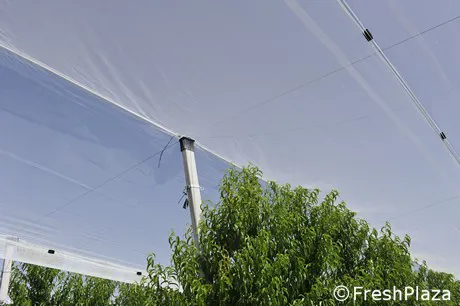
As affirmed by Mattia, "you cannot obtain quality by reasoning like 40 years ago and for this reason I always try to stay updated. For example, as far as treatments against diseases are concerned, I rely on IPM, a program that processes data from the three weather stations and probes that I have in the field and calculates the degree of risk of the spread of fungal diseases, as well as the flight of insects. Also when it comes to fertilization, I cross the data of the probes and of the leaf analyzes to determine how much to produce and when. I leave nothing to chance. The aim is to intervene as little as possible, but when it is necessary, we intervene with maximum effectiveness."
Mattia has a concrete concept of sustainability: from the roof of the new warehouse rainwater is channelled into an underground cistern that acts as a reservoir used for irrigation or treatment. The wagons used for thinning and harvesting are electric, and thanks to the nets the treatments are limited.
"The covered plant was completed in early June and now there is nothing left to do but to prepare for the harvest", as mentioned by Mattia.


